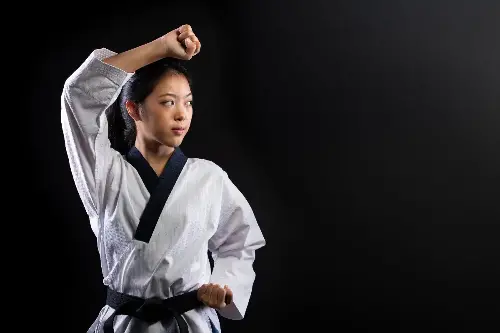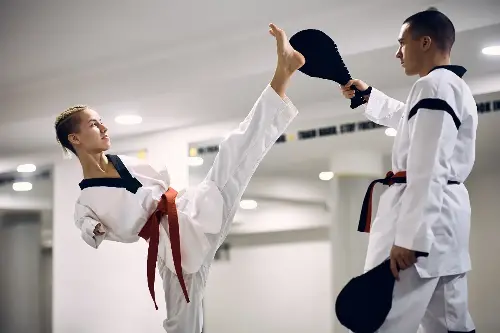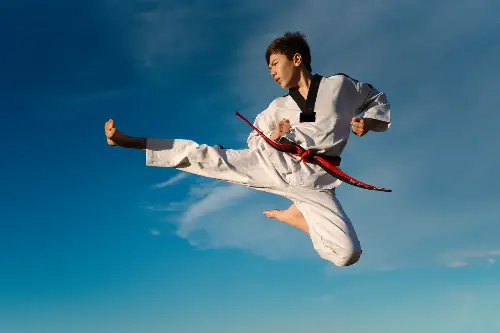Martial arts, much more than being merely systems of combat and self-defence, have long woven their threads through the cultural fabrics of societies worldwide. Originating from various geographical regions, each form of martial arts carries its own unique history, philosophy, and traditions, transcending borders and influencing a myriad of cultures globally. This rich cultural legacy coupled with an emphasis on moral and ethical development has made martial arts a pathway to lifelong discipleship for many.

The Philosophical Foundations
At the core of many martial arts lies a deeply rooted philosophy that extends beyond physical prowess to include mental and spiritual aspects. For instance, the Japanese martial art of Karate upholds the philosophy of "Do" or the "Way," which emphasises moral fortitude and the perfection of character. This principle resonates with the practice of Karate across the world, advocating for a life lived with integrity and courtesy. In China, Tai Chi operates not just as a martial art but as a form of moving meditation, reflecting the Taoist philosophy, which aims for harmony between the inner self and the external world.
Similarly, Brazilian Jiu-Jitsu, which grew out of the Japanese Judo, emphasises the idea that even a much smaller, weaker person can successfully defend against a bigger, stronger assailant through proper technique and leverage. This principle underpins not only training in martial arts but also offers practical, philosophical, and metaphorical lessons about overcoming obstacles and challenges in life.

Cultural Exchange and Adaptation
The spread of martial arts across continents is a highlight of cultural exchange and adaptation. When observing martial arts like Taekwondo, we see a Korean tradition that integrated elements from Japanese and native influences to develop into a sport that boasts international competitions like the Olympics. Meanwhile, Aikido, which centres on using an opponent's energy to gain control, also promotes the philosophy of peace and reconciliation. This has found a universal appeal, promoting non-violence in practice, a striking counter to the often aggressive portrayal of martial arts in popular media.
Moreover, the practice of Silat, hailing from Southeast Asia, showcases the rich cultural milieu from which it originates. With movements inspired by animals and nature, Silat is intertwined with the spiritual life of the regions it is practiced, displaying a robust integration of martial arts into cultural expressions.

Training the Mind and Body
The training involved in martial arts is rigorous, demanding coordination, flexibility, strength, and endurance. However, equally important is the mental training, which instills discipline, respect, patience, and perseverance in the practitioner. These qualities, when nurtured through the consistent practice of martial arts, help individuals not only in self-defence but also in various aspects of personal and professional life. The dojo, which is the training place for many Japanese martial arts, operates not just as a space for physical training but as an arena for developing self-control and respect for others.
The Role of Martial Arts in Modern Society
In today’s global village, martial arts schools can be found in nearly every country, and these schools are often melting pots of nationality, age, gender, and social background. Through common practice, these diverse groups forge a shared identity that champions respect for all and the pursuit of personal excellence, echoing the traditional values of their respective arts.
The widespread practice of martial arts also supports community building and provides a platform for cultural diplomacy. International martial arts festivals and competitions foster cross-cultural interaction and mutual respect among nations, which can help ease geopolitical tensions.
Additionally, the spiritual aspect of martial arts provides a counterbalance to the fast-paced, technology-driven lifestyle of modern society. Many turn to martial arts to find solace, stress relief, and a sense of community and belonging.
The traditional values upheld by various martial arts promote not only physical well-being but also the nurturing of moral values which have wide-reaching benefits beyond the confines of the practice itself. As these martial arts migrate from their cultural origins to global platforms, they spread messages that resonate universally: respect, perseverance, discipline, and harmony. Martial arts, therefore, remain a relevant and impactful testament to the power of cultural legacy and its role in shaping both personal lives and broader societal interactions.
